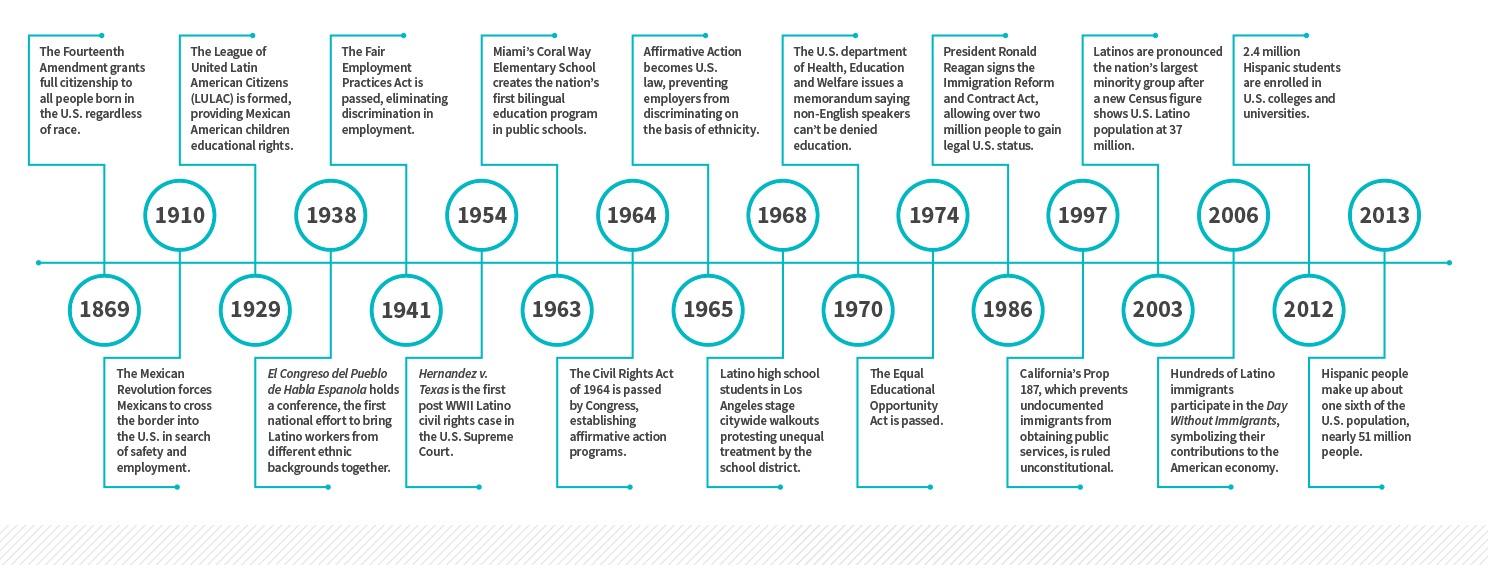Last updated: March 07, 2022
Since 2012, we’ve seen long-term increases in Hispanic students pursuing higher education, as well as positive trends in educational enrollment for traditionally underrepresented students. A record seven-in-ten or 69% of high schoolers of Hispanic descent enrolled in college from the class of 2012, which was higher than their caucasian counterparts of the same graduating class. While these figures demonstrate a positive socio-economic uptick for underrepresented students, this certainly indicates a growing need for federal, private and state funding to support the increase in higher education enrollment.
Luckily massive amounts of opportunities exist for Hispanic and Latino students when it comes to financial aid. Organizations such as the Hispanic Education Association (HEA), American Association in Higher Education (AAHHE) and the Hispanic Education Coalition (HEC) are just a few of the many groups dedicated to providing national, renewable and recurring scholarship opportunities to support students who wish to pursue the careers of their dreams. To learn more about how you can pay for college, follow this guide and use our interactive tool to sort through scholarships for Hispanic students.
How to Pay | Application Prep | Hispanic Scholarships | All Scholarships
Educational Milestones for Hispanic Students in the U.S.

Thousands of successful Latino Americans have used student loans and scholarships as a way to fund their college education—many of whom are first generation college students. American actress, Gina Rodriguez, best known for her lead role on hit series Jane the Virgin, has first-hand experience of what it’s like to to overcome both financial and emotional obstacles to attend college. In a recent interview with Huffington Post, the 33-year-old Golden Globe winner vocalized how valuable your education is to yourself, your family and your community.
“You are not only experiencing this amazing time in college and getting your education — owning something that no one can ever take away from you — but you are going to be the face of your family, for your cousins for those that come after you, for even your ancestors. Just remember, during those times of fear or doubt, that you are right now discovering your true strength.”
- Gina Rodriguez, Huffington Post: Gina Rodriguez Has The Ultimate Pep Talk For First-Generation College Students
Recent studies show that Latinos were even more likely than white students to say that a college degree is essential to get ahead in life. In an age of rising high school graduate rates and college attendance, Latinos are making huge strides towards pursuing and achieving a higher education. With such fantastic socio-economic progress being made, it’s more important than ever that there is enough national financial support to guide students to the careers of their dreams.
Resources for Hispanic Students
College Action Plan
An e-mentoring group utilizes the Facebook community to exchange tips of planning for college from middle-school through the college application process.
Hispanic Association of Colleges & Universities National Internships
This program opens the doors of opportunity for Hispanic students prepare for and seek out internships.
New Futuro
Offers a guide for Hispanic students and their families to navigate the college application process.
Student Now
Resources for Latino students including scholarship information, sorority and fraternity options and other general information specifically for Latino students.
The Dream.US
This site offers financial aid resources and information on the best colleges for Hispanic students.
Plato
The PLATO project provides resources for underrepresented students who plan to study abroad.
How to Pay for College
Scholarships
There are hundreds of scholarships for Hispanic students, which are awarded by local organizations, private companies, societies and more.
Grants
Grants don’t need to be paid back and are based on your financial circumstances. They are usually funded by the federal government, your state or college.
Fellowships
While scholarships usually fund tuition, fellowships typically cover graduate study, research projects and abroad experiences without needing to be paid back.
Student Loans
You can borrow money from the government or a bank, but it needs to be paid back with interest. The federal government offers many loan options—fill out the free application for Federal Student Aid (FAFSA) to see if you qualify for financial aid. If you need help, use our interactive guide to learn how to answer every question.
Federal Work-Study Program
Provides part-time jobs for undergraduate and graduate students with financial need, allowing them to earn money to pay education expenses.
If you’re just beginning the process of finding suitable scholarships, make sure you’re prepared for the application process by starting a folder with the assets below.
Scholarship Application Preparation
Sources
- Scholarship data provided by Peterson's Data
- The New York Times: As Latinos Make Gains in Education, Gaps Remain
- PBS: Latino Americans
- Teaching Tolerance: Latino Civil Rights Timeline
- Pew Research Center: Hispanic High School Graduates Pass Whites in Rate of College Enrollment
- Pew Research Center: How Young Latinos Come of Age in America
- Huffington Post: Gina Rodriguez Has The Ultimate Pep Talk For First-Generation College Students